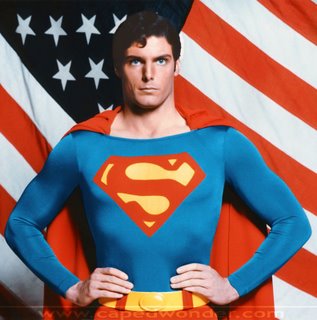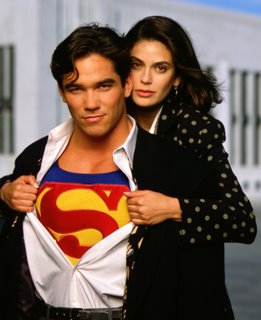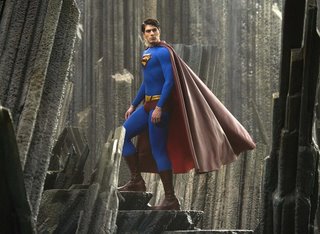During the summer before my senior year of college, in a desperate attempt to make enough money to pay for rent and books when the semester started, I worked two jobs. I had a full-time job at an insurance agency, and worked three nights a week at the campus library. I remember being completely drained on the two-job days. I left my apartment at 7:30 in the morning and, except for a quick stop to change clothes and grab something that passed for a dinner I could eat on the bus, I didn’t see it again until 11:30 in the evening. During what little “down-time” I had on those hectic days, I remember daydreaming about what I would do with all the free time I’d have on my next “easy” day. I imagined myself reading stacks of books, experimenting with all kinds of recipes, or, as always, writing the great American novel.
In reality, more often than not, even on the easy days, I was so wiped out from the long hours on the previous day that all the energy I could muster went toward whipping up some kind of instant noodle or rice dish from a box, and eating it right out of the pot in front of the television. I did this for just three months, and the physical and emotional exhaustion sapped me of all desire to accomplish anything, go anywhere, or do anything.
My parents did it for ten years.
It is only recently, as I’ve gotten older, that I’ve been given access to small amounts of the truth about what happened during the ten years in which my parents were the owners and sole employees of an ice cream store in our hometown. And it is only now, that I am armed with what is surely not even close to a full account, that I’ve come to understand the kind of people M & M really are.
It was the mid-1980s. My father was a junior high school teacher in Brooklyn, New York – in heavy traffic, easily an hour-long commute from our house in Staten Island. My mother was a stay-at-home mom. (At least, that’s what she’d be called today. At that time, long before political correctness banished the term from our country’s vocabulary, she would have been called, simply, a housewife.) In the summer months, during the school vacation, my father drove an ice cream truck. (A profession almost as noble as teaching, any kid with fifty cents and good hearing can tell you. Then again, maybe these days, it’s up to a dollar, or even two. I’m not sure…it’s been a long, long time since I heard the bells of a Good Humor truck jingling in the distance and ran out the door to wait for it.)
As I understand it, my father was looking for something more lucrative and more fulfilling to do with his summers than drive an ice cream truck for someone else’s business. He got the idea to start his own business, and the only thing he felt confident in his knowledge about, was ice cream. Against my mother’s loud and insistent opposition, he purchased a location that, with time, a lot of labor, and a lot of money, would become their literal and figurative prison for the next ten years.
I remember watching week after week, month after month, as the site was transformed from an empty, dingy box that looked more like an unfinished basement than an ice cream parlor, into a bright, cheerful place that practically screamed sugar, smiles, and happiness. The concrete floor was covered with white and blue tiles; the walls were painted white, with a border of colorful balloons. They hired several kids from the local high school to work in the store, along with children of friends, and even my sister. (I was a little too young at the time, never mind the fact that I couldn’t see over the counter!)
Unfortunately, the cheerful, inviting atmosphere failed to draw the crowds my father had anticipated. The store wasn’t in the best location. It was a bit out of the way for most people; unless you knew it was there, you never would have noticed it.
It didn’t take long before a big problem surfaced: the bills kept coming; the business, however, did not. This is one area where my full knowledge of the situation is full of holes, but as I understand it, there were a lot of hidden costs associated with starting a business that my parents, being novices, did not foresee. Unable to pay minimum wage salaries anymore, one by one, they had to let all the employees go. From bits and pieces I’ve overheard through the years, things got so bad, that at one point, we were in danger of losing our house.
Thus began a fight any comic book superhero wouldn’t dare go near. A struggle so long, so exhausting, that not Batman, not Spider Man, not even Superman, would have the courage to face. Only two real-life superheroes could walk through this deep, dark tunnel, starting their journey with no end in sight, and come out on their feet. Only my mother and father.
The two of them were the sole employees of the store for the better part of ten years. No weekends off, no holidays except Thanksgiving and Christmas. No sick days, no paid vacations. I guess we should be grateful that the teacher’s union had such a solid health plan, because the business certainly couldn’t provide one. And, even so, both of my parents had health problems they neglected for years, just because they never had time to see a doctor. My mother would wake up early, to make sure me and my sister got off to school all right, and then she would open up the store, where she would work by herself until my father got there, but not without once again battling the traffic back in from Brooklyn. They switched places when my father got there; my father would work there in the evening, and my mother would come home, to face a night of cooking dinner, doing laundry, and helping with homework.
I worked two jobs for only one summer, and I spent a lot of that time planning all the fun things I would do on the weekends, when I didn’t have to spend sixteen hours working and commuting. I can’t imagine what it was like for my parents, to spend ten years waiting for “someday.” That distant, magical someday, when they would have time…time to travel, time to read the hundreds of books that had come out in the past few years that they’d been adding to the reading lists in their heads. Or time to just sit in front of the TV and enjoy a program freely, without thinking about the eight million things they had to take care of before they went to bed. I’m absolutely certain living that way was not how either of my parents imagined their life would be. I still sometimes wonder what their childhood dreams were, and how terribly far away from them they found themselves.
~~~~~~~~~~~~~~~~~~~~
A few months ago, I completed USAF survival school. After the most difficult part of the training, I rewarded myself with all kinds of junkfood, and endless hours in front of the TV. The toughest part of the training was only two days long. Hell, the entire course lasted only three weeks. For what my mother and father had to endure and survive through for ten years, I’ve decided they can do whatever they want, for as long as they want.
Thanks to the endless, grueling days, during which she put her family before herself, my mother now faces a series of health problems. My sister and I used to criticize her for spending so much time playing computer games, or watching television. But the more I comprehend how hellish it must have been for all those years, the more I realize my mother deserves as much down time as she wants. Lord knows, she’s earned it.
As for my father, on the rare Sundays when my mother would work to give him the day off, he would collapse on the couch and sleep most of the day away. (A habit he still holds dear.) Again, the more I think of how he worked himself almost into dust, the more I believe my dad can take as many naps as he wants. Lord knows, he’s earned them.
The store’s been closed for eleven years now, and my father still likes to take all-day naps. My mother still likes to relax with a cup of coffee and a good TV show. And it’s only taken me eleven years to finally shut up about it. They’ve earned it.
~~~~~~~~~~~~~~~~~~~~
I have many friends who come from broken homes. Some are well adjusted; some are not. With very few exceptions, all the friends I grew up with lived in homes where their parents were still together. It is so foreign to me now, when I hear so many people I work with talking about their stepmother, stepbrother, half-cousin, or mother’s new husband’s half-sister.
With all the problems my parents faced, and the dire straits they were in, it would have been easy for things to fall apart in their marriage. I can’t say whether they ever came close, but there was never any indication that they were less than in love. I never remember them fighting, though I’m sure they did. With all the stress, the money problems, tensions must’ve run high. But I never remember a raised voice, and certainly not a cross word. Minor disagreements, yes. Backseat driving, yes: on the rare occasions, like Thanksgiving, when the store was closed, and the four of us would get in the car and drive upstate to visit cousins. But all-out insults, accusations, and fights were completely nonexistent. (At least, in my presence.)
~~~~~~~~~~~~~~~~~~~~
My family was never rich, but my sister and I never wanted for anything. There was always food on the table. There were always gifts at Chanukah. I’ll probably never know how much of that is due to the generosity of my grandparents on both sides. I couldn’t even hazard a guess as to how much effort, how much scrimping and saving it took to buy the clarinet I received as an 8th grade graduation present. (But it might make my parents feel better to know they’ve gotten their money’s worth, for sure. After all, I’m playing the same instrument now, fourteen years later, and every time I take it out of its case, I still remember how surprised I was when they gave it to me.)
All I know is, when my sister and I needed something, it was there. Somehow, we never had to go without. Looking back, for a family that was so financially strapped, we had a ridiculous amount of Barbie dolls and accessories. In addition to ice cream, my parents sold candy, magazines, homemade frozen treats, and novelties in the store. How much of their potential profit did I rob them of, every time I took a magazine home with me, because it had the absolute best poster of the New Kids on the Block, and I could not live without it? (We’re talking early 1990s, remember!) How much of their profit did I eat, literally? How much ice cream did I help myself to? How many bags of chips? (It’s too bad they didn’t stop me, really, because now, at the ripe old age of 28, I’m still trying to work all of it off my hips and thighs!)
I wish I would have known. I would have asked for less. I would have been perfectly fine making do with fewer dolls, fewer nights at the movies with my friends. I know I was young, but I was intelligent. I think I would’ve understood the situation, if they had tried to explain it to me. The thing is, they never did.
I’ve never talked to my sister about it, so I don’t know how much of the real situation she was aware of, but I was completely ignorant of what was happening around me. It never occurred to me that my mother didn’t want to work there every day, or that my father didn’t want to be a slave to two jobs. Maybe I was too naïve to see it for myself, but I wish they would have explained. Hindsight being what it is, I am now sure they hid the worst of it from me because they didn’t want to scare me. And maybe they were right. Maybe I had a carefree, happy existence because I had no idea how bad things were outside myself. Then again, maybe that’s exactly why my parents worked so hard in the first place: to give me and my sister that carefree, happy existence that all parents want for their children.
~~~~~~~~~~~~~~~~~~~
Sunday nights usually meant Chinese food in our house. I looked forward to it all weekend. I was so proud of myself, because I would sometimes set the table. Looking back, I can’t imagine why I didn’t do it every night. It was five minutes’ worth of my time, and it would have meant one less thing my mother had to do when she got home, already exhausted from spending all day on her feet, only to face the prospect of cooking dinner for four, and preparing school lunches for the next day. Apologies over something that happened so long ago seem pointless now, but if it means anything, I’m sorry. I’m sorry I was too young, and too ignorant and naïve, to realize how just a small change in my behavior could have had such a profound effect.
When I’m in the supermarket now, and I see all the “shortcut” foods, designed, I assume, for busy working moms I find it hard to believe that so many women depend on them. We ate our share of TV dinners, but mostly because we liked the taste. I remember very few nights when my mother didn’t cook something “real.” I have very vivid memories of her stirring pots on the stove, or outside on the deck, basting ribs on the barbecue.
Relatively speaking, my parents weren’t around a lot. My sister and I were home alone very often. To date myself again, I guess you could call us “latchkey kids.” And yet, my sister and I turned out fine. We’re both honorable, smart, law-abiding, and hard-working. Unlike so many stories you hear nowadays, we’re not using our childhoods as an excuse to be anything less than decent human beings.
Then again, we really have no excuse. On a day when there was never time – time for my mother to get her hair done, or swim in our pool, or go see the latest movie, there was always time for us. On days when there was no time for my father to buy himself new clothes, or take my mother to dinner, there was always time for us. My sister and I were both very active in extra-curricular activities in school. No matter how busy our parents were, someone was always there for us, cheering from the audience. At band concerts, SING, science fairs, graduations, someone was always there.
Maybe we didn’t take family trips to the Grand Canyon, or even all eat dinner together most nights. Maybe we didn’t see all the sights in New York City or go to Yankees games every summer. I didn’t miss it then, and I don’t, now. I never felt unheard, or unloved. I never felt like I had anything less than a perfect childhood. If my parents are reading this, and I know they are, please read this paragraph again. Did you hear me? I never felt like I had anything less than a perfect childhood.
~~~~~~~~~~~~~~~~~~~~
I once heard that at the darkest point, when my parents were in danger of losing our house, and the future—if they had the courage to think about it at all—no doubt looked unbearably bleak, my father considered committing suicide. I can only hope that seeing me in my uniform, seeing P in her wedding dress, and seeing his grandchildren in whatever adorable outfit they’ve got on, is enough for him to be certain that the more difficult decision—hanging on, sticking with it—was the right one.
~~~~~~~~~~~~~~~~~~~~
There’s only one thing—one big thing—that I remember my parents not being able to give us. It didn’t affect me, but at the time, it was my sister’s greatest wish. She’d been accepted to Boston University, and it was, to use a phrase any high school senior is familiar with, her “dream school.” She had the grades, she had the credentials, she had the SAT scores. What my parents did not have, however, was the money. In what was probably the biggest disappointment of her life until that time, my sister ended up going to a state university. But, if my parents ever felt any guilt over this, and I’m sure they have, I hope that their son-in-law and two beautiful grandchildren are living proof that, in the end, things happened for a reason, and in fact, probably happened exactly the way they were supposed to. If P had gone to Boston, she never would have met S, and they would not have gotten married, had children, and created another family being run in the shadow of my parents’ own example: hard work, smarts, commitment, sacrifice, and love.
~~~~~~~~~~~~~~~~~~~~
A few years ago, my mother and I were riding in the car. Kenny Rogers’ Through the Years came on the radio. My mother told me it was one of her favorites; the song reminded her of all the struggles she and my father had faced, how they got through them, and how they were still together, still intact, on the other side. Oddly enough, the song had always been one of my favorites, too, but my reasons were far less profound. I simply liked the lyrics, and Kenny Rogers has a way of singing that makes it difficult for me to find a song of his that I don’t like. After hearing my mother talk about it, Through the Years is still one of my favorites. Now, though, instead of reveling in the raspy, yet rich, deep voice of one of America’s great country music icons, I cry every time I hear it. I cry because it reminds me of my parents, and how much of themselves they sacrificed for the sake of two little girls whom they never, ever disappointed.
~~~~~~~~~~~~~~~~~~~~
On November 21, 1971, in a small ceremony in a rabbi’s office in Brooklyn, M & M spoke the vows they would adhere to for the rest of their lives. The vows to stay together, no matter what.
Happy 35th Anniversary, Mom and Dad.
And, thanks.







